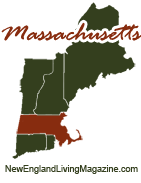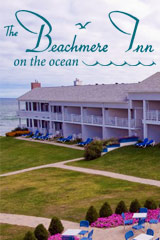
The State of Massachusetts: An In-Depth Exploration
Massachusetts, known as the “Bay State,” is a place of rich history, diverse demographics, thriving regions, and vibrant communities. This article will delve into the early history, population, demographics, regions, relocating to Massachusetts, business resources, housing, and the quality of life and living in this remarkable state.
Early History of Massachusetts
Indigenous Inhabitants
Before European settlers arrived, Massachusetts was inhabited by various Native American tribes, including the Wampanoag, Nipmuc, Massachusett, and Nauset. These tribes had complex societies with their own systems of governance, trade, and culture. They lived off the land through hunting, fishing, and agriculture, growing crops like maize, beans, and squash.
European Exploration and Colonization
The first European to explore Massachusetts was the Italian explorer Giovanni da Verrazzano in 1524. However, it was not until the early 17th century that significant European settlement began. The Pilgrims, a group of English Separatists seeking religious freedom, landed at Plymouth in 1620. They established Plymouth Colony, which became one of the first successful English settlements in North America.
In 1630, the Massachusetts Bay Colony was founded by the Puritans under the leadership of John Winthrop. This colony quickly grew and became economically prosperous, setting the stage for Massachusetts to become a leading center of commerce and culture in New England.
Revolutionary Era
Massachusetts played a pivotal role in the American Revolution. The Boston Tea Party in 1773, a protest against British taxation, ignited the revolutionary spirit. Key events such as the Battles of Lexington and Concord in 1775 marked the beginning of armed conflict between the American colonies and Great Britain. Massachusetts’ contributions to the revolution were significant, both in terms of military leadership and intellectual influence, with figures like John Adams and Samuel Adams emerging as prominent leaders.
Industrialization and Growth
In the 19th century, Massachusetts transitioned from an agrarian economy to an industrial powerhouse. The establishment of textile mills in cities like Lowell and Lawrence marked the beginning of the Industrial Revolution in America. The state’s economy diversified, with industries such as shoe manufacturing, machinery, and later technology and education becoming dominant.
Modern Era
The 20th and 21st centuries saw Massachusetts continue to evolve. It became a hub for higher education and technology, with institutions like Harvard University and MIT leading in research and innovation. The state’s economy grew to include finance, healthcare, and biotechnology, making it one of the wealthiest and most dynamic states in the nation.
Population and Demographics
Population Growth
As of the latest census, Massachusetts has a population of approximately 7 million people, making it the 15th most populous state in the United States. The state has experienced steady population growth, driven by its strong economy, educational institutions, and high quality of life.
Demographic Composition
Massachusetts is one of the most diverse states in the country. Its population is composed of various ethnic and racial groups, including:
- White (Non-Hispanic): The largest demographic group, making up about 70% of the population.
- Hispanic or Latino: Approximately 12% of the population.
- Black or African American: Around 9% of the population.
- Asian: Approximately 7% of the population.
The state also has a significant number of residents who identify as multiracial or belonging to other racial and ethnic groups.
Age Distribution
The age distribution in Massachusetts reflects a balanced mix of age groups:
- Children (0-17 years): About 20% of the population.
- Working-age adults (18-64 years): Approximately 63% of the population.
- Seniors (65 years and older): Around 17% of the population.
This demographic diversity contributes to a dynamic and multifaceted society.
Educational Attainment
Massachusetts is renowned for its high educational attainment levels. The state boasts some of the nation’s most prestigious universities, including Harvard University and the Massachusetts Institute of Technology (MIT). As a result, over 40% of residents hold a bachelor’s degree or higher, one of the highest rates in the country.
Regions of Massachusetts
Massachusetts can be divided into several distinct regions, each with its unique characteristics and attractions.
Greater Boston
Greater Boston is the largest metropolitan area in Massachusetts and the cultural and economic heart of the state. It includes the city of Boston and surrounding communities such as Cambridge, Somerville, and Brookline. This region is known for its historical landmarks, world-class educational institutions, and vibrant cultural scene.
North Shore
The North Shore, stretching from Boston to the New Hampshire border, is known for its picturesque coastal towns, maritime history, and scenic beauty. Popular destinations include Salem, famous for its witch trials, and Gloucester, one of the oldest fishing ports in the United States.
South Shore
The South Shore encompasses the coastal area south of Boston, including towns like Quincy, Plymouth, and Marshfield. Plymouth holds historical significance as the landing site of the Pilgrims, and the region offers beautiful beaches and charming seaside communities.
Cape Cod and the Islands
Cape Cod, Martha’s Vineyard, and Nantucket are renowned vacation destinations known for their stunning beaches, quaint villages, and maritime heritage. These areas attract visitors from around the world and are popular for activities such as boating, fishing, and whale watching.
Central Massachusetts
Central Massachusetts features a mix of urban and rural landscapes. Worcester, the state’s second-largest city, is a hub for education and healthcare. The region also includes the scenic Quabbin Reservoir and numerous state parks, offering outdoor recreational opportunities.
Western Massachusetts
Western Massachusetts is characterized by its rolling hills, picturesque towns, and vibrant arts scene. The Berkshires, a popular cultural and outdoor destination, hosts music, dance, and theater festivals. The region also includes the cities of Springfield and Northampton, known for their rich history and cultural attractions.
Relocating to Massachusetts
Relocating to Massachusetts offers numerous opportunities and considerations. The state’s diverse regions, strong economy, and high quality of life make it an attractive destination for individuals and families.
Employment Opportunities
Massachusetts has a robust economy with strengths in various sectors, including education, healthcare, technology, finance, and biotechnology. The Greater Boston area, in particular, is a global hub for innovation and research. Major employers include prestigious universities, leading hospitals, tech giants, and financial institutions.
Housing Market
The housing market in Massachusetts varies significantly by region. The Greater Boston area tends to have higher housing costs, reflecting its desirability and economic opportunities. In contrast, more affordable housing options can be found in Central and Western Massachusetts. The state offers a mix of urban apartments, suburban homes, and rural properties to suit diverse preferences.
Education and Schools
Massachusetts is known for its excellent public and private schools. The state consistently ranks high in national education assessments. In addition to its world-renowned universities, Massachusetts has a robust K-12 education system, with many top-rated schools and districts.
Healthcare
Massachusetts boasts some of the best healthcare facilities in the country. The state is home to leading hospitals such as Massachusetts General Hospital, Brigham and Women’s Hospital, and Boston Children’s Hospital. Residents have access to high-quality medical care and a wide range of specialized services.
Transportation
The state has a well-developed transportation network, including highways, public transit, and airports. The Massachusetts Bay Transportation Authority (MBTA) operates an extensive public transit system in the Greater Boston area, including buses, subways, and commuter rail. Logan International Airport in Boston serves as a major gateway for domestic and international travel.
Massachusetts Business Resources
Massachusetts offers a wealth of resources for businesses and entrepreneurs. The state’s thriving economy and supportive business environment make it an ideal location for startups, established companies, and innovators.
Innovation and Research
Massachusetts is a global leader in innovation and research, driven by its world-class universities and research institutions. The state fosters collaboration between academia, industry, and government, creating a dynamic ecosystem for technological advancement and entrepreneurship.
Financial Incentives
The state provides various financial incentives and programs to support businesses. These include tax credits, grants, and loans for startups, small businesses, and companies in targeted industries. The Massachusetts Office of Business Development (MOBD) offers resources and assistance to businesses looking to expand or relocate to the state.
Networking and Support
Massachusetts has a vibrant business community with numerous networking opportunities and support organizations. Chambers of commerce, industry associations, and innovation hubs provide valuable resources, mentorship, and connections for entrepreneurs and business owners.
Workforce Development
The state places a strong emphasis on workforce development and education. Programs and initiatives aim to align workforce skills with industry needs, ensuring a talented and adaptable workforce. Institutions like the Massachusetts Technology Collaborative and the Massachusetts Life Sciences Center play a key role in fostering workforce development in emerging industries.
Housing in Massachusetts
The housing landscape in Massachusetts is diverse, offering options to suit various preferences and budgets. Understanding the housing market and available resources is essential for anyone considering moving to the state.
Urban Living
Urban living in Massachusetts is centered around the Greater Boston area. The city offers a mix of historic neighborhoods, modern apartments, and luxury condominiums. Popular neighborhoods include Back Bay, Beacon Hill, and South End. Urban living provides access to cultural amenities, public transit, and vibrant communities.
Suburban Living
Suburban areas in Massachusetts offer a balance of residential comfort and proximity to urban centers. Towns like Newton, Brookline, and Lexington are known for their excellent schools, parks, and family-friendly environments. Suburban living often features single-family homes with yards and access to local amenities.
Rural and Coastal Living
For those seeking a more rural or coastal lifestyle, Massachusetts has numerous options. The North Shore, South Shore, Cape Cod, and Western Massachusetts offer scenic beauty, outdoor activities, and a slower pace of life. Coastal towns provide opportunities for boating, fishing, and beachcombing, while rural areas offer tranquility and natural surroundings.
Affordable Housing
The state offers various programs to support affordable housing and assist residents in finding suitable homes. The Massachusetts Department of Housing and Community Development (DHCD) provides resources and information on affordable housing options, rental assistance, and homebuyer programs. Nonprofit organizations and housing authorities also play a crucial role in providing affordable housing solutions.
Life and Living in Massachusetts
Living in Massachusetts offers a rich and fulfilling experience, characterized by cultural diversity, educational excellence, and a strong sense of community.
Cultural and Recreational Activities
Massachusetts boasts a vibrant cultural scene with numerous museums, theaters, music venues, and festivals. The state is home to renowned institutions such as the Museum of Fine Arts in Boston, the Tanglewood Music Festival in the Berkshires, and the Salem Witch Museum. Residents can enjoy a wide range of activities, from attending concerts and art exhibitions to exploring historical landmarks and outdoor adventures.
Outdoor Recreation
The state’s diverse landscapes provide ample opportunities for outdoor recreation. Massachusetts offers activities such as hiking, biking, skiing, and boating. The Appalachian Trail, the Berkshires, and the Cape Cod National Seashore are popular destinations for nature enthusiasts. State parks and recreational areas provide scenic trails, picnic spots, and camping facilities.
Sports and Athletics
Massachusetts has a rich sports culture, with passionate fans and successful professional teams. Boston is home to iconic franchises such as the Boston Red Sox (MLB), New England Patriots (NFL), Boston Celtics (NBA), and Boston Bruins (NHL). College sports also play a significant role, with universities like Harvard and Boston College fielding competitive teams.
Dining and Cuisine
The culinary scene in Massachusetts is diverse and vibrant, reflecting the state’s multicultural population. Boston, in particular, is known for its seafood, with dishes like clam chowder, lobster rolls, and fried clams being local favorites. The state also offers a wide range of international cuisines, farm-to-table dining, and innovative culinary experiences.
Community and Social Life
Massachusetts residents enjoy a strong sense of community and active social life. The state’s towns and cities host numerous events, festivals, and community gatherings throughout the year. Farmers’ markets, craft fairs, and cultural celebrations provide opportunities for residents to connect and engage with their communities.
Environmental Sustainability
Massachusetts is committed to environmental sustainability and conservation. The state has implemented various initiatives to promote renewable energy, reduce greenhouse gas emissions, and protect natural resources. Residents and businesses are encouraged to participate in recycling programs, energy efficiency measures, and sustainable practices.
Quality of Life
The overall quality of life in Massachusetts is high, with residents enjoying access to excellent healthcare, education, and recreational opportunities. The state’s diverse communities, cultural richness, and natural beauty contribute to a fulfilling and balanced lifestyle.
Massachusetts is a state of remarkable diversity, historical significance, and vibrant communities. From its early colonial roots to its modern role as a leader in innovation and education, Massachusetts offers a unique blend of tradition and progress. Whether you are considering relocating to the state, exploring its regions, or seeking business opportunities, Massachusetts provides a welcoming and dynamic environment for individuals and families alike. For more information and updates about life in Massachusetts, visit MALiving.com.
SHOP MASSACHUSETTS GIFTS & APPAREL
Attractions | Inns | Resorts | Hotels
Vacation Rentals |
Real Estate | Restaurants
Camping | Business | Pet Friendly Lodging







